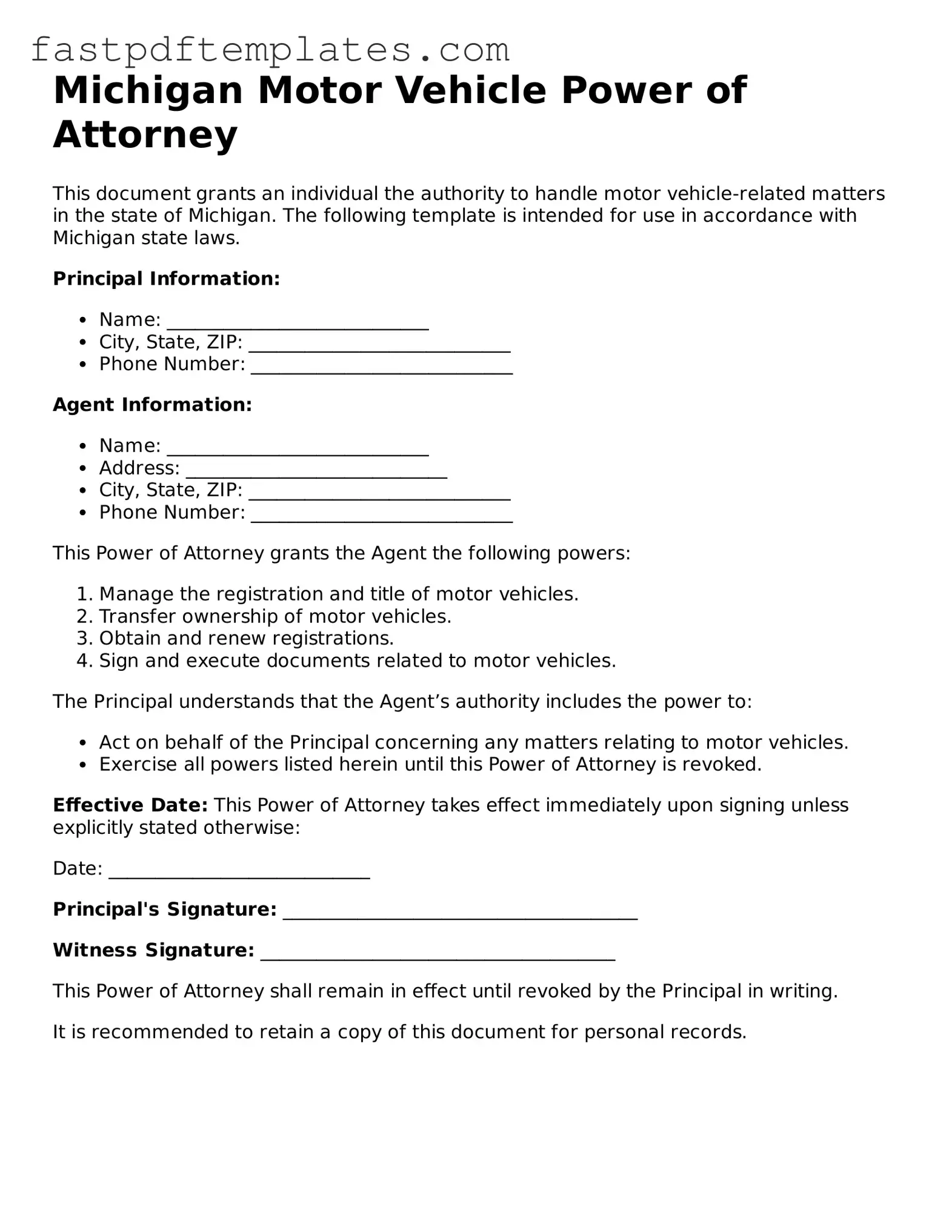Attorney-Approved Michigan Motor Vehicle Power of Attorney Document
The Michigan Motor Vehicle Power of Attorney form is a legal document that allows an individual to designate another person to act on their behalf regarding motor vehicle transactions. This form is particularly useful for those who may be unable to handle such matters personally due to various reasons, such as illness or absence. By granting this authority, the principal can ensure that their vehicle-related affairs are managed efficiently and effectively.
Access Document

Attorney-Approved Michigan Motor Vehicle Power of Attorney Document
Access Document
Your form still needs completion
Complete your Motor Vehicle Power of Attorney online and download the final PDF.
Access Document
or
Click for PDF Form
